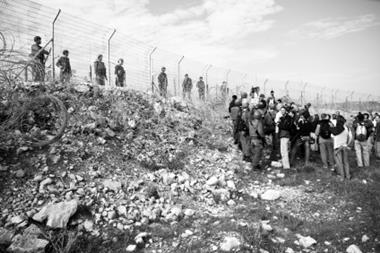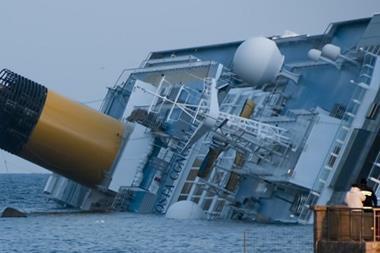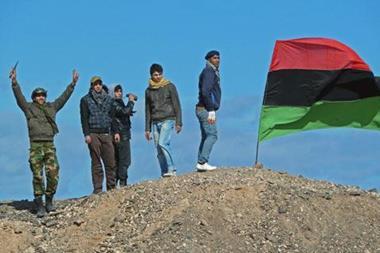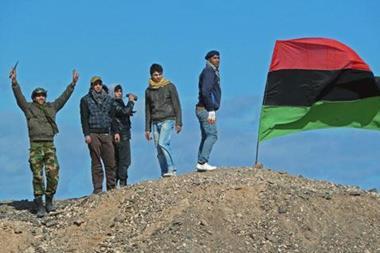Operating on foreign soil brings with it all manner of political risks. For mobile phone company Orange it was having its Egyptian network shut down by the government during the Arab Spring. But a keen eye can spot threats early

“Our people were shocked.” So says Orange risk manager Alain Hocquet of the reaction from Orange’s Egyptian employees on finding that the mobile phone network was being shut down on government orders, right at the defining moments of the Arab Spring. But such is life, says Hocquet. There is nothing a risk manager could do to stop it.
Political risk looms ever larger in the consciousness of risk managers. With opportunities for growth within Europe stagnant or declining, large companies need to look elsewhere. And, says Marsh managing director Stanislas Chapron, this means they are forced to contemplate regions of the planet that carry increased political risk.
There are lots of political developments to cause concern for the risk manager contemplating 2012. Iran looms large. This is a fundamentalist regime, given to talking of expunging Israel and widely suspected of working to achieve the nuclear means to bring this about.
Elsewhere in the region, the convulsions of the Arab Spring have yet to play themselves out. Syria remains unresolved; Libya is hardly stable, nor is Egypt. What of Yemen? What of Lebanon, What, even, of Saudi Arabia?
Political risk is like buying a cat in a bag. You don’t know what it will be like”
Alain Hocquet, Orange
Much of Africa looks equally unpalatable from the political risk viewpoint. JLT’s World Risk review is headlined ‘Nigerian instability delivers stark warning to investors’. The ongoing conflict in Somalia shows no sign of ending, while the problems of piracy caused by that failed state continue to affect maritime trade throughout the Indian Ocean. Meanwhile, the hostile rhetoric emerging from the ANC Youth League in South Africa has raised concern among potential investors.
“It is going to be a challenging year,” Control Risks senior business development manager Julien Artero says. “There were many new developments in 2011, which may have further to go. We must wait to see how things settle down.”
He notes that there has been growth in security risk in regions previously considered safe. He also cites as an issue the growing awareness of the need for corporate integrity in the face of bribery and corruption. “Many companies are coming to realise that they may be exposed, and are seeking advice.”
Local knowledge
Chapron also feels that 2012 will be a challenge. For French companies with historical links to North Africa, he thinks the political risk is somewhat eased by experience of the region. But where companies have no links, no direct knowledge, and must go on advice, the situation is more difficult. It is, he says, a risk in itself. His advice? “Risk managers must have open views and be prepared for anything.”
He recommends keeping a close eye on the markets. “Often you can feel the little winds there - the ripples - before the big storm arrives. Be aware.”
But, Hocquet reflects, political risk is not always as obvious as it at first seems. For example, Orange operates in Equatorial Guinea, on most scales the planet’s second or third most corrupt country. The probability of something going wrong in such a country is high, yet the impact on the group would be small.
In a country such as France on the other hand, the probability might be very low, but the impact would be very high indeed. Which should be more important in the minds of shareholders, and indeed in the mind of the risk manager?
Intervention risk
For a mobile telecoms operator such as Orange, the risk of intervention by governments is always high, as telecoms operations are effectively subject to a licence that can be withdrawn, and often comes with clauses on public security, co-operation with law enforcement, and so on.
While the clauses are not illegitimate, it is some governments’ use of them that can cause problems. Indeed, during the World Cup in France in 1998, there were arrangements to selectively monitor networks to prevent civil disorder being caused by hooligans.
“The problem,” Hocquet says, “is that some people in the field of corporate social responsibility expect companies to be better than the states they operate in. They forget that to operate in a country, you have to accept the rules. Even in the face of possible arbitrary decisions, providing people with access to modern telecommunications is still the better choice.”
Political risk has many faces; one is arbitrary taxation. “It is more common, pervasive and invasive than any other,” says Hocquet. “Governments all over the world consider telecoms operators a cash cow.”
And telecoms operators are not alone. The oil industry is another popular target for governments in search of easy money, as in March 2011, when the UK raided the North Sea oil industry with a £2bn (€2.4bn) levy.
Political risk is the great unknown. “Expanding our footprint is part of our strategy, and carries risks like any strategy,” says Hocquet. “But political risk is a bit like buying a cat in a bag. You don’t know what it will be like.”




















No comments yet